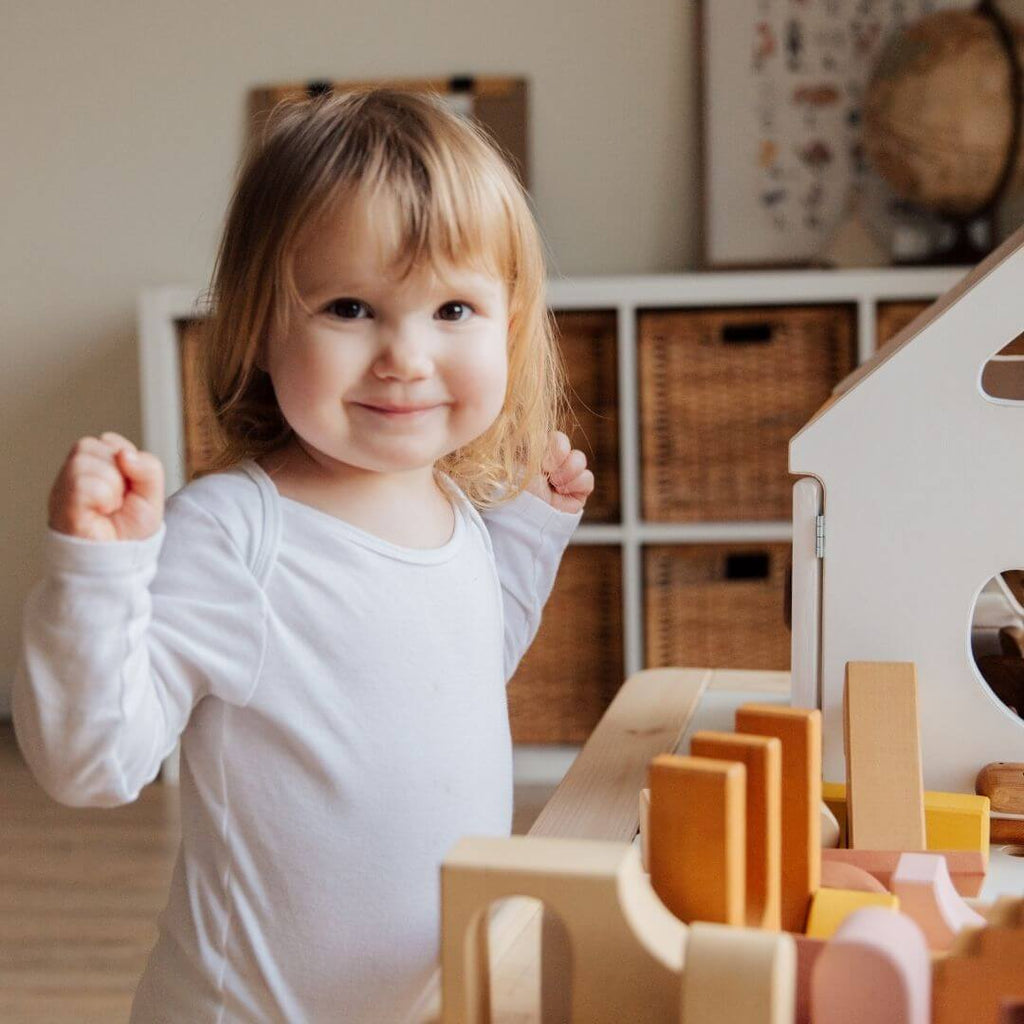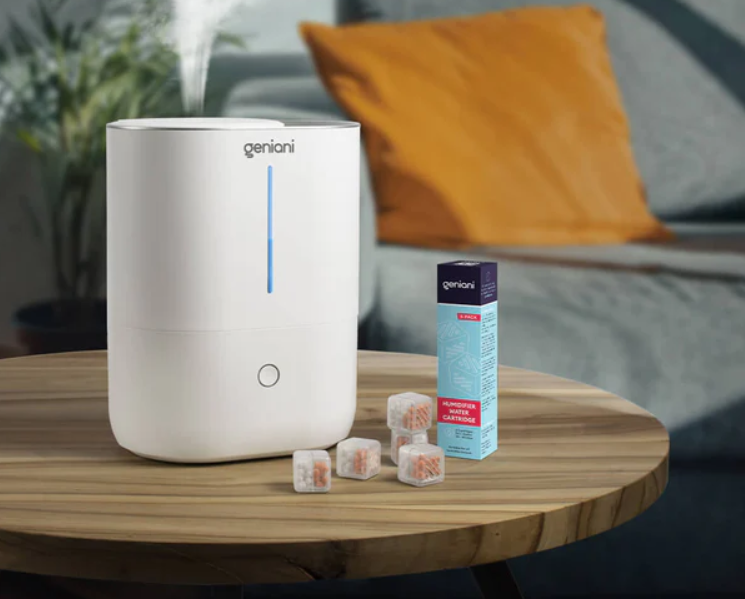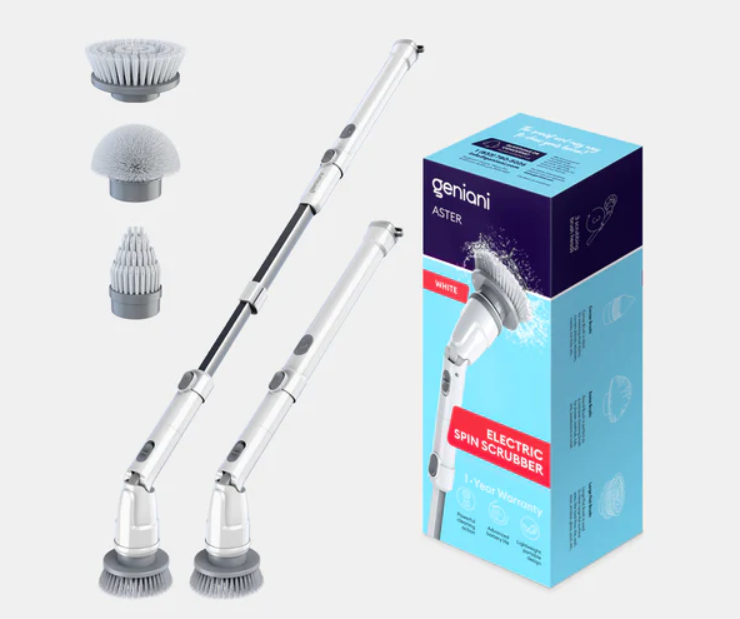If you are setting up a nursery for your baby, we know you want your child to be as comfortable and healthy as possible, which means you have surely considered buying a humidifier for the baby’s room. Perhaps you haven’t purchased one yet because you are unclear on what a humidifier does, or you are unsure of its benefits for the infants or don’t know how to choose the right one. We understand you are still undecided, that’s why we have created this handy guide to help. So, let’s get started with the basics recommendations, including how to decide whether or not your baby needs a humidifier, and if so, how to choose the best one.
What Do Humidifiers Do for Babies
The main task of a humidifier is to vapor water into the air. That way, you can increase the moisture in your home during winter months when humidity levels are usually below average.
A Humidifier for Your Nursery: a Good Idea

To understand whether or not your child needs a humidifier in his room, take a moment to answer these questions:
- Does your child often cough, have colds and flu?
- Has sleeping problems?
- Does your baby often get tired for no reason?
- Has dry skin during winter?
If you’ve answered “yes” to at least one question, getting a humidifier is recommended. Numerous studies prove the efficiency of having a humidifier in a nursery. Here are a few advantages for your child:
- The quality of sleep will be better by relieving stress on your baby’s sinuses
- Your child will have fewer colds and no stuffy nose because of higher moisture in the home
- A humidifier makes it easier for a child to breathe by relieving lung tension.
The protection against dry air is one of the most important benefits of having a humidifier in the child’s room. This is especially true in the winter months. In this season air tends to become dry from your heating system robbing the natural moisture in it. Babies easily fall prey to infections and sicknesses. It happens because they are much more susceptible to congestion. A humidifier adds moisture to the air and creates optimal breathing conditions, allowing your baby to sleep comfortably and loosen the build-up of mucus. A humidifier also helps relieve your baby of irritated, dry skin. And it is the best pros of a cool-mist humidifier for the child’s room. Baby’s skin is sensitive to dry climates and can result in red patches and tender, chapped lips. The dry air may also be aggravating to common skin conditions, such as eczema. By using a humidifier, the skin remains soft and clear by retaining its natural moistness. Another benefit of a humidifier in the nursery is the white noise it provides. Not only will it help to drown out household noises like dogs, television, and kids playing, but it will also help lull baby into a peaceful sleep.
Pros and Cons of Humidifier in Baby Room
A cool-mist humidifier for the nursery is a good idea if your baby has problems with sleep, skin, and well-being. There are 6 pros and cons of a cool-mist humidifier that are necessary to know.
Soothes and Eases Dry Air Symptoms
Dry air can cause a lot of problems, but humidifiers will help to resolve them easily. Dry sinuses, bloody noses, and cracked lips are no longer a problem if you pick a right cool mist humidifier for your household. It can also ease cold, allergy and asthma symptoms because of increased humidity levels.
Humidifier Must be Refilled Frequently
A humidifier needs regular maintenance for it. What does it mean? You should refill and clean your humidifier regularly.
Furniture Last Longer

Everyone knows that dry air can be harmful to wood furniture. Therefore, the right humidity levels in your home can also increase the life of fixtures in your home. Especially wood furniture and wallpaper, which can suffer ill effects if kept in an environment that is too dry.
Condensation
The wrong humidifier’s setting or for too long usage through the day which causes overly high humidity levels in your home. Such a problem is named condensation, which triggers the growth of bacteria, dust mites and mold. These microorganisms can increase allergy and asthma problems.
Microorganisms
Bacteria and other microorganisms can multiply on the moist surfaces of a humidifier and in the water tank. And then a humidifier disperses them into the air. But, calm down. You can prevent such a problem. Just keep your humidifier clean. Maintain it daily and weekly as directed in your humidifier owner’s manual.
White Dust
Ultrasonic humidifiers can disperse fine, white dust in the room the humidifier is placed in. It is because of mineral deposits and other impurities in the water. Using distilled water reduces or eliminates the dust.
Where to place a cool-mist humidifier in the baby’s room
Select a location where the baby can’t reach the humidifier or pull the electric cord on the device. Do not place your humidifier on the floor. The higher the humidifier is placed the better. It produces a mist that has to get mixed with the air. When the item is placed on the floor the mist has no chance to get mixed and it causes wet floors. Try to put it on the nightstand or a table.
How to Choose the Right Humidifier for a Baby’s Room
There are a lot of humidifiers on the market. It’s easy to get overwhelmed by the choices. However, to make it easier, here are things top rated humidifier should have to be safe for a child.
Choosing the Best Type of Humidifier
Having a humidifier at home or the office is a huge trend these days. Manufacturers understand the benefits and their popularity and dozens of new models have started to appear on the market. Choosing the best one is harder than ever. Here are some tips to help you sort through all the options to choose the best fit. Generally, all humidifiers fall into one of two categories: they are either cool mist or warm mist. Here’s why a lot of people might choose warm mist humidifiers:
- they are normally cheaper;
- warm mist humidifiers are quieter than some cool mist ones;
- warm mist humidifiers are known to be easy to use.
Still, their major flaw is a huge potential for burns. There’s hot water in the humidifier and that’s how soothing mist is produced. So, if a humidifier falls or the water spills out, your baby can get burned. It might not be highly likely to happen but why should we take the risk when it comes to our children? For that very reason, most parents choose a cool-mist humidifier. Here the safety risks have been taken into account so that burns are no longer a concern.
Ultrasonic Over Evaporative

Before we get to explaining why one is a better fit for children or newborn babies than the other one, it’s only logical to explain the difference between the two technologies. Evaporative humidifier – traditional technology. The gist of this technology is using fan-aided evaporation to turn water into the air. There’s a filter that sucks in the air thus increasing humidity in the room. One of the major advantages of evaporative humidifiers is no white dust since they have a filter. However, there are still a few important drawbacks worth mentioning.
- Evaporative humidifiers require more space;
- This type of humidifier is usually louder. As some babies are pretty sensitive to noise, your child might wake up or not be able to fall asleep with the added noise of a humidifier in the room.
- Evaporative humidifiers use more energy than ultrasonic ones.
Is It Safe to Use Humidifier in Baby Room

Ultrasonic Humidifier – a Modern Advancement
Ultrasonic humidifiers are most parents’ favorite choice. Why? Let’s get into the details. How does an ultrasonic humidifier work? There’s a small plate vibrating on frequencies a human ear cannot detect to break the drops of water into a mist that later disperses in the air. Thanks to this advanced technology, ultrasonic humidifiers are usually quiet. Ultrasonic humidifiers have a lot of advantages over evaporative ones. To name but a few:
- An ultrasonic humidifier uses less electricity than an evaporative one;
- To make sure a child doesn’t isn’t disturbed during his sleep, a parent’s wise choice would also be an ultrasonic humidifier;
- An ultrasonic humidifier runs for more hours than an evaporative one.
Note, however, that an ultrasonic humidifier is filter-free. That’s why you should use distilled water instead of tap water – to prevent white dust from being produced. No one wants his baby to breathe in dangerous substances, right?
A Few Quick Care Tips

- Use distilled instead of tap water. That way, you don’t risk the development of mold, bacteria, and white dust inside of a humidifier.
- Clean a humidifier every day (especially if you bought a cool-mist one). Otherwise, your child will breathe in bacteria that’ll weaken his immune system.
- Don’t use sharp objects to clean a humidifier as you can damage it and cause water leaks in the future.
- Make sure you clean all the parts of a humidifier – the base and the tank.
Choosing the Size of a Humidifier
All humidifiers are grouped into three categories by size:
- Small;
- Medium;
- Large.
Choosing the right one is determined by the size of a room where you plan to use a humidifier. Now, how do you know whether your nursery is small, medium, or large? Here are the guidelines:
- A small room is up to 155 sq. ft.;
- A medium room’s area is up to 300 sq. ft;
- A large room has an area of up to 500 sq. ft.
Wrapping Things Up
When you go shopping for a humidifier, check with the manufacturer whether a particular model is baby-proof. By that, we mean:
- Quiet: can your baby sleep with no disturbances?
- Safe from burns: is there a risk of water spilling, leaking, etc?
- Has an automatic shut-off feature: when there’s no water in a humidifier, it must shut down by itself as your child can’t do it and you might not always be around;
Quite often, manufacturers create one or two humidifiers specifically for children. At least, that’s what we did with our 3L ultrasonic humidifier. Geniani humidifiers are considered extremely children-friendly. We’ve been ranked #5 in Wiki Ezvid of 2018’s best humidifiers for babies. We make sure our humidifiers are safe for children and will enhance a nursery. We hope this article was helpful to you. Now you know what a parent should be looking for when choosing a humidifier for their child. Good luck with finding the best fit!
ENJOY THE SPECIAL BENEFITS FOR OUR ENGAGED BLOG READERS!
- Get 11% OFF any heating pads: Use “BLOGHEAT” during your checkout or follow this link to get your deal!
- Get our brand new Huron Humidifier White with 15% off instantly, just follow the link and enjoy your special discount.
- Buy portable cool mist humidifier Erie White with 14% off. Follow the link to get your discount applied.
- Purchase the microwavable heating wrap Magma Space Blue with 15% off. Follow this link to get a coupon activated.







